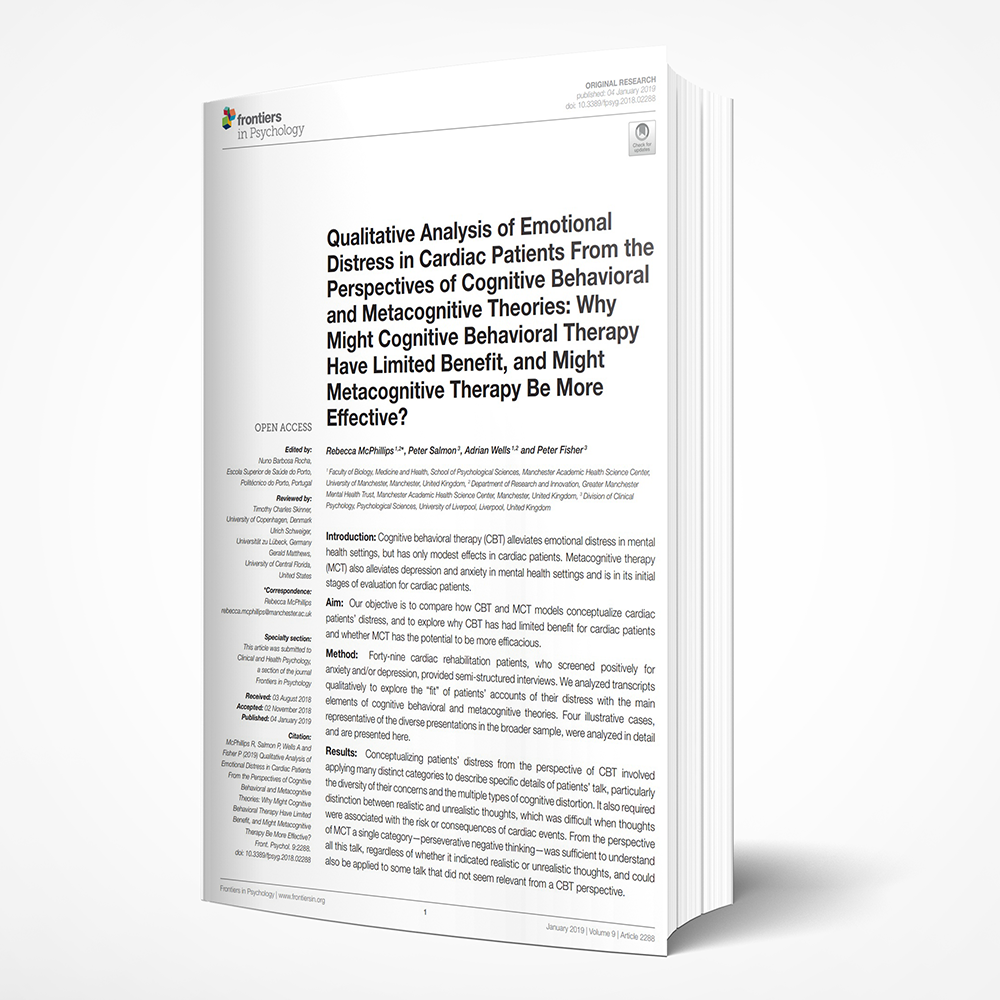
McPhillips, R., Salmon, P., Wells, A., & Fisher, P. (2019). Qualitative analysis of emotional distress in cardiac patients from the perspectives of cognitive behavioral and metacognitive theories: why might cognitive behavioral therapy have limited benefit, and might metacognitive therapy be more effective?. Frontiers in psychology, 9, 2288.
Background: Cognitive behavioral therapy (CBT) alleviates emotional distress in mental health settings, but has only modest effects in cardiac patients. Metacognitive therapy (MCT) also alleviates depression and anxiety in mental health settings and is in its initial stages of evaluation for cardiac patients.

